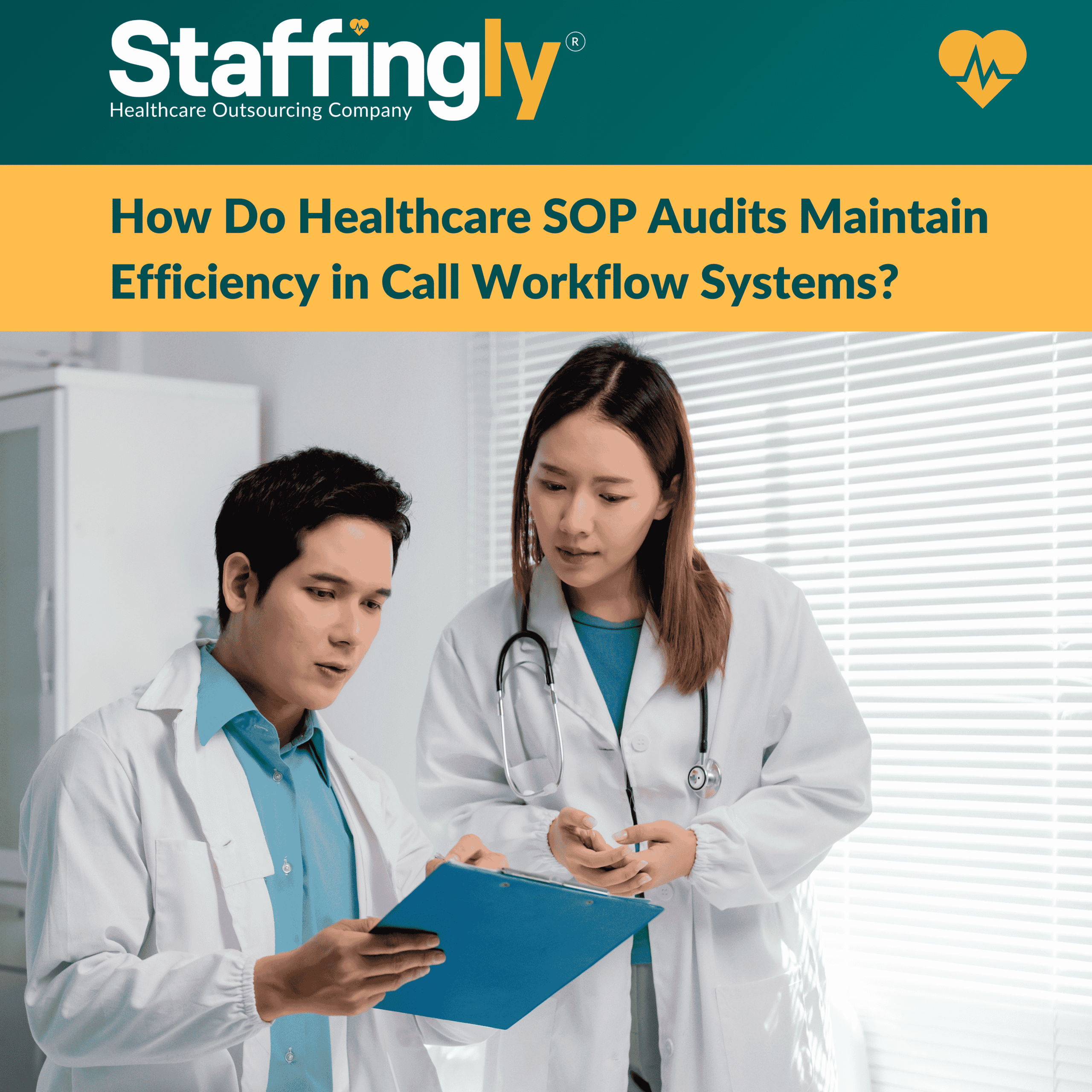On-Demand Outsourcing BPO Services for Healthcare Providers With 24/7 Coverage!
Save up to 70% on staffing costs!
Browse Specialty Staffing Services
The Evolution of Medical Coding: Adapting to New Technologies
Medical coding has become an essential part of healthcare revenue management and compliance, yet it continues to be a challenge for many healthcare providers. The industry is undergoing a transformation as new technologies, such as AI, machine learning, and automation, revolutionize how medical coding is done. These tools help clinics improve accuracy, reduce claim denials, and maintain compliance with ever-changing regulations, ultimately improving the revenue cycle. 💬 “Medical coding used to be a paper-based task. Now, it’s all about data

Why Is Quarterly HIPAA Compliance Training Critical for Healthcare Staff?
In today’s fast-evolving healthcare landscape, protecting patient trust and ensuring data security is paramount. Regular HIPAA compliance training plays a critical role in safeguarding sensitive patient information and fostering a culture of accountability and care. For healthcare professionals, this training reinforces the importance of adhering to HIPAA standards, ensuring that patient health information (PHI) is handled with the utmost care. This article explains why quarterly HIPAA training is essential for healthcare professionals and how it directly benefits patients. Protecting Patient

How Do Healthcare Teams Successfully Manage High Volume Workloads Without Stress?
High patient volumes are a common challenge in healthcare, whether due to flu season, emergency surges, or a busy appointment schedule. These spikes can put tremendous pressure on healthcare teams, increasing the risk of burnout and potentially compromising the quality of care. However, with the right strategies, tools, and a proactive mindset, healthcare providers can handle these busy periods efficiently while maintaining high-quality care. This article explores eight actionable approaches that can help healthcare professionals manage peak workloads effectively and

How Do Healthcare SOP Audits Maintain Efficiency in Call Workflow Systems?
In the fast-paced healthcare industry, call workflow systems are essential for managing patient interactions, streamlining operations, and ensuring high-quality service delivery. From appointment scheduling to insurance verification and medical inquiries, these systems are the backbone of efficient patient communication. However, without well-defined Standard Operating Procedures (SOPs) and regular SOP audits, call workflows can become disorganized, inefficient, and prone to errors. This article explores the critical role of SOP audits in healthcare call centers, their benefits, and best practices to optimize

Why Are Healthcare Providers Struggling with Insurance Inquiries and Billing Issues?
In U.S. healthcare, wait times on phone calls or in waiting rooms are often seen as inconveniences but hold untapped potential to enhance patient knowledge, improve patient care, and tackle insurance inquiries and billing issues. By using informative hold music and waiting room communications, clinics can educate patients, reduce administrative burdens, and boost patient satisfaction. Partnering with Staffingly, a leader in healthcare outsourcing, can optimize these efforts. This concise article explores how clinics can leverage wait time, its benefits, and

How to Enhance After-Hours Patient Care with Faster Call Response in Healthcare?
In the U.S. healthcare system, delivering exceptional after-hours patient care is crucial for improving outcomes, boosting patient satisfaction, and optimizing operational efficiency. With only 29% of U.S. physicians offering structured after-hours care beyond emergency department referrals, healthcare providers and patients face significant challenges in accessing timely support. By integrating advanced communication technologies, best practices, and Staffingly’s specialized outsourcing solutions, healthcare organizations can transform after-hours care. This blog, tailored for U.S. healthcare providers and patients, highlights how to enhance call response

What Benefits Do Healthcare Answering Services Offer for Coordinating Return to Office Notices?
As healthcare facilities transition back to in-office operations, effective communication with patients and staff is paramount. Healthcare answering services offer a robust solution to manage return-to-office notices, addressing the unique challenges faced by healthcare providers. By leveraging these services, practices can enhance efficiency, ensure compliance, and improve patient satisfaction. This article outlines the key benefits of healthcare answering services, with a focus on how Staffingly supports healthcare providers during this critical phase. Key Takeaways Healthcare answering services are essential for

How Can Smarter Call Routing Improve Patient Access in Hospitals and Clinics?
In today’s fast-paced healthcare environment, patient access is a cornerstone of effective care delivery. With increasing demand on hospitals and clinics, providing seamless access to the right healthcare provider from the very first call has become crucial. Smarter call routing technologies are increasingly recognized for their ability to streamline this process, reduce patient wait times, and improve both patient satisfaction and operational efficiency. In this article, we explore how smarter call routing systems can transform patient access and support better
 Book a Demo to Build Your Team Today!
Book a Demo to Build Your Team Today!


 Read Case Studies
Read Case Studies 



 Virtual Medical Assistants
Virtual Medical Assistants



